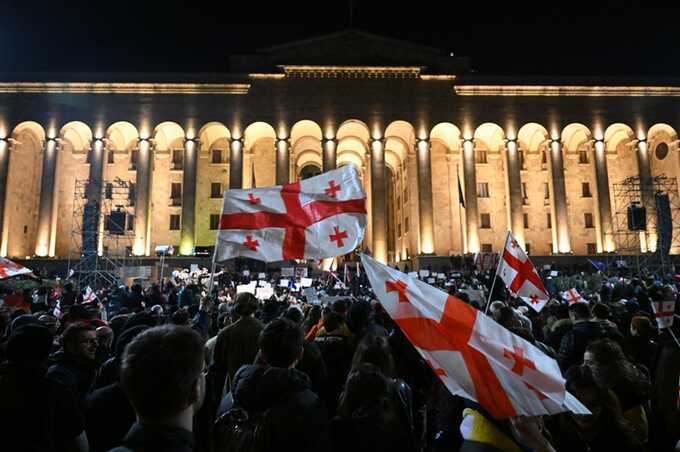With the foreign agent deadline expiring, Georgian media face heightened threats

A disputed law passed by the Georgian parliament in June, which requires organizations receiving more than 20% of their funds from abroad to register as “foreign agents,” is starting to bite as tens of thousands of NGOs refused to register voluntarily and will now face fines, be forcefully added to the list, and be closely monitored.
The government set the registration deadline for Monday, but by that time, only 469 out of over 30,000 NGOs in the country had complied. Now, the country’s Justice Ministry will have the authority to register them, fine them for non-compliance, and carry out “monitoring” activities.
This means that the Justice Ministry’s authorized personnel will have the right to obtain sensitive and personal data of the organization and all individuals working there. According to the law, the monitoring of an organization can involve inspections every six months.
Many Georgians refer to the new law as the “Russian bill” due to its similarity to a law Moscow introduced to silence opposition voices.
The Georgian Parliament passed the law despite massive protests in the capital. Although President Salome Zourabichvili vetoed the law, parliament overruled her and adopted it anyway.
Following the law’s enactment, the Justice Ministry established a special department for financial reporting under the National Agency for Public Registry to enforce the controversial legislation.
Organizations that failed to register will be fined 25,000 lari (about US$9,300) and will be subject to "forced registration." Any organization entered in the registry will then have 10 days to submit various forms detailing their income and expenditures. Failure to submit these forms would result in an additional 10,000 lari ($3,700) fine.
Some NGOs have announced their closure, citing the high fines and hoping the October elections will bring change.
For example, the “Racha Community Organization,” which focused on advocating solutions to local community problems, has suspended its activities. “We are waiting for the elections,” the NGO’s founder, Eto Arsenizde, told OCCRP.
However, others appear determined to resist.
“Not only are we not registering, but we also do not plan to pay any fines,” said Kato Kopaleishvili, director of the Georgia-based media outlet Tabula, on Wednesday.
“We are not going to pay any fines to the Russian government,” she said, hinting that the Georgian leadership is a Russian puppet. He added that his outlet has no reason to register as a foreign agent because it “is not serving any foreign influence, but rather Georgia’s national interest.”
According to Nino Zuriashvili, head of the OCCRP’s Georgian member center “Studio Monitori,” the outlet has also refused to register.
“As of now, we are lawbreakers. We are going to pay the fine; we have no other safe option at this stage,” Zuriashvili said.
After being overruled by parliament, President Zourabichvili, along with a group of NGOs and opposition lawmakers, turned to Georgia’s Constitutional Court, hoping it would annul the Foreign Agents Law.
The court held preliminary hearings from August 29 to 31 but has not yet reached a decision.
Eteri Turadze, the editor of the local media outlet “Batumelebi,” expressed little hope that the ruling would suspend the law.
“We do not have high expectations that the Constitutional Court will go against the interests of a very narrow but influential group, or more precisely a few individuals, but we think that legally we should use all available tools,” Turadze explained.
Studio Monitori’s Zuriashvili said a complaint was submitted to the court against Georgia’s parliament decision along with a request for a temporary “emergency measure until the final decision is made.”
“It may take a year for the court to review the case, but after a year we and other organizations could disappear altogether” she said. “So we requested a temporary suspension of the law. That is very important,” she told OCCRP.
Read more similar news:
Comments:
comments powered by Disqus

































